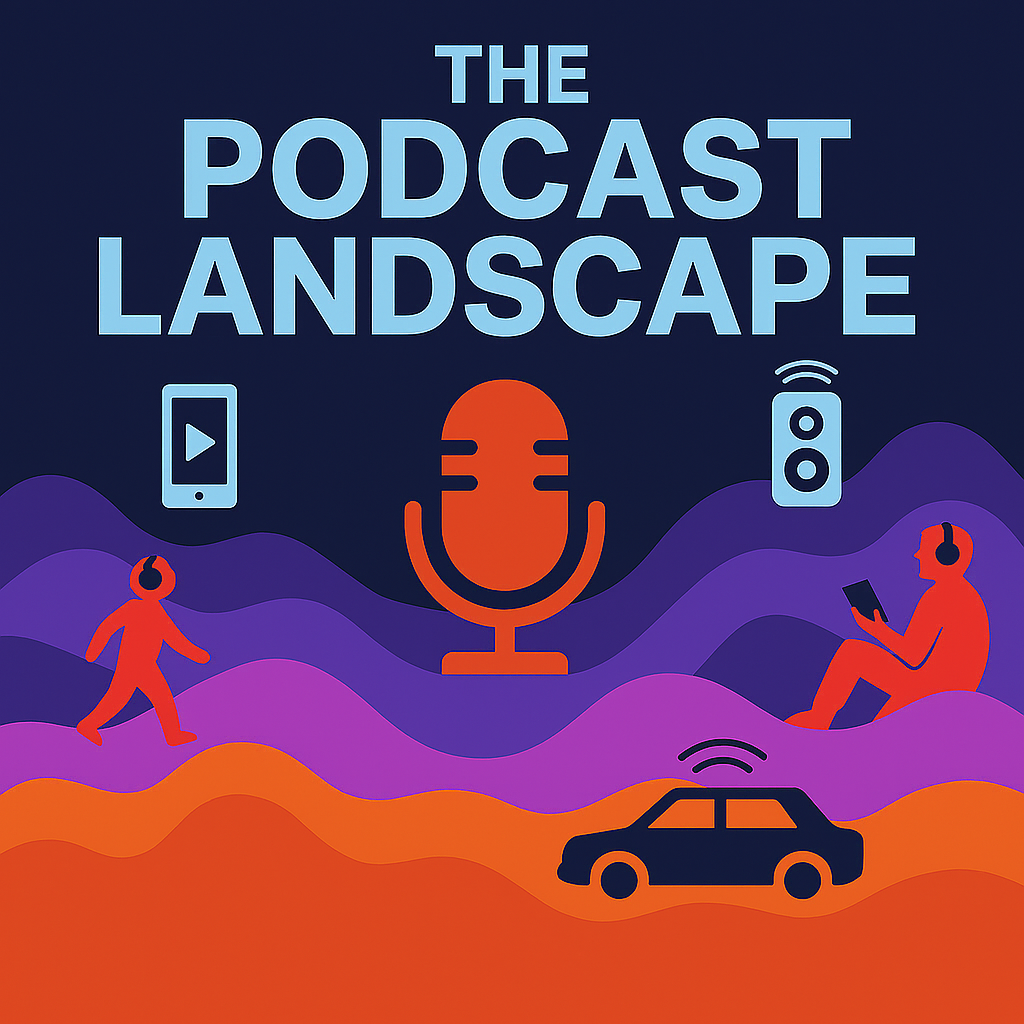This week on the Sounds Profitable DeepDive, Bryan Barletta is joined by SoundStack co-founder Rockie Thomas to discuss SoundStack’s independent, tech-agnostic audio ad exchange. Tune in now to hear how they pursue giving every audio publisher, big and small, equal access to the tech and partners of their choice.
This past weekend I hopped a prop plane to CANADIA to attend and speak at Podcamp Toronto, in one of my favorite cities in the world. When I talk to indie podcasters at events like this, my topic is often a variant on the same theme – how do we master our craft? How do we get better as podcasters, and create work that is recommendable beyond our immediate social circle?
I’ll boil it down to this: there are two levers that podcasters can pull to produce their best work: you can master your knowledge of the process of podcasting, and you can master your knowledge of the audience. We spend a lot of time on the former – one look at the schedule for any podcasting event will make that math crystal clear. And as an industry, we spend almost no time on the latter.
The Big Lie
In fact, the biggest lie we all tell ourselves is this: “I know my audience.” Let me assure you, unless your audience consists solely of friends and family (and we’ve all been there), you do not know your audience. I could spend five minutes with you, quizzing you about the habits and beliefs and values of your audience, and stump you with basics every single time. Heck, I could stump myself about the Sounds Profitable podcast audience the same way! We are all fighting a great battle.
I’ve spent 25 years studying the care and feeding of an audience, and I’ll be the first to admit that I don’t always understand what works, and what doesn’t. It’s a practice – a discipline – to incorporate the voice of the listener into every single thing that we do. For my larger network clients, this often takes the form of listener surveys and other formal research projects, but I have to be honest here – even at the highest levels of podcasting, not enough of this work is being done to truly understand the most important thing you can know about the audience – why they chose your show, and more importantly, why they would recommend it to a friend. Instead, most of the work being done in podcasting is about understanding the listener-as-product, the thing that we bundle and sell to advertisers to put food on our families, as W once said.
If that sounds cynical, I don’t mean it to be so. Advertiser-focused research is what is paying the bills for all of us in the ad-supported world, and the bills need to be paid before we can invest in content research and other flights of fancy. Advertisers want to know the age, gender, and income of your audience. They want to know if you have kids, and a 401K, and an aging car, and an expiring phone contract. But none of those things – NONE of them – will help your show get better.
So what will? More importantly, how can podcasters with limited resources learn more about their audience and what makes them tick? Crazy thought here: you can talk to them. I am not talking about an audience survey or conducting focus groups or anything like that. Just talk to them. Let them know in your show itself that you’d love to open a dialogue with them, and learn more about why they listen, what keeps them coming back, and what you could do to improve. This can take the form of an email, a Slack channel, a Google form, or yes, even a survey. As long as you open a dialogue, you are doing the work.
But here is the issue – we don’t always know the right questions to ask. After hundreds of focus groups with tens of thousands of humans all over the world, I can assure you that if you ask a listener what they think of your podcast, the answer will be: “I dunno – I like it. It’s pretty good. It’s funny/interesting”. Super helpful, right?
The reality is that humans (especially American humans) have access to a much greater vocabulary for what they don’t like than what they do. With a generic question like “what do you think of my podcast” you are likely to get a very generic positive answer. It’s when we don’t like something that we gain access to a more specific lexicon. Read reviews on Yelp or Amazon and see if I’m not right about this. People who love a particular restaurant will note that the food is good and the service is fast and friendly. But overcook someone’s steak, and you’ll get more words for that than the Inuit have for snow.
So, what do we talk about when we talk about our podcasts? The key to generating insight is to avoid questions that are hypothetical, abstract, or general (HAG) in favor of those that are specific, actual, and personal (SAP). These are really awful acronyms, my apologies (RAAMA).
Five (plus) Great Questions
So here are 5+ great questions you can ask your listeners that will genuinely help you understand them better, and thus serve them better. I shared these with the attendees at Podcamp Toronto, and now I share them with you.
1. How did you discover my show? Often, when we ask this in listener surveys, it is asked for marketing purposes – what channels are more effective in terms of promoting the show, and which ones should I spend less time on? This is all true, but I prefer to ask this question to understand the exact transaction or negotiation that occurred at the moment of discovery, and not to learn which channel to invest more heavily in. After all, the top means of discovery in podcasting continues to be recommendations from friends and family, and we are not about to increase our “friends and family budget.”
Instead, I like to get down to the actual moment, if the listener remembers. Was it a recommendation? What was the context for that? What information did you give the recommender, and how did they then “sell” the show to you? If you were searching for a show, what exactly were you searching for? Did you get it? Again – specific, actual, and personal. These kinds of questions probably work best in an actual conversation or video call, but I bet you have listeners that would be thrilled to do this with you.
2. What other podcasts do you listen to? This is another question often used for marketing purposes (where can I run promos?) that is actually more important for insight. When I ask this question, I am trying to get to the heart of the consideration set of the listener, and where my show slots in. Is my sports podcast the only sports podcast they listen to? Why is that? Is it one of five? Why do they bother, and what does my show give them that the rest do not? What I am trying to discover here, as James Joyce asks in Ulysses, “Who’s he when he’s at home?”
Understanding the full media diet of your listener, and where exactly your show slots in, is the key to leaving deeper footprints with an audience. Sometimes it is in the vocabulary of other things they listen to that a listener gains the language to describe what your show is, or is not.
3. Would you make the show shorter, or longer? This is an excellent way to turn a lousy question (how long should my podcast be?) into an insight-generating question. A listener cannot tell you how long your podcast should be. That isn’t their job. They might give you an answer to this question as a kind of Stockholm Syndrome relief, but it won’t be particularly valuable. But asking about making the show shorter or longer is an entree to a better question: what would you cut or do less of (if the answer is shorter), or what would you like to enjoy more of (if the answer is longer). These are things the listener can talk about intelligently and in a way that is actionable for you. Anyway, the answer to the “how long should my podcast be question”, one of the crappiest questions of all time, is this: “shorter than your last one.”
4. This next one is a bit of a two-parter, but if you only have time to talk to someone about one thing, I’d recommend a variation of this one. Think about a friend or family member who would like this show – tell me about them! Who are they, what do they look like, what do they do for a living, and why would you make this recommendation? That’s all part one. Part two is the logical conclusion – describe the show for that person. What would you highlight, and why? The key here, again, is to push beyond the abstract and aggregate, and learn as much as you possibly can about this specific real human, and the specific way your listener would talk about your show to them, right down to inside jokes and other shared experiences. The more detail you can elicit here, the more insight you will have into how people really think about what it is you are doing. They may highlight a strength of yours that you weren’t really considering. They also might “apologize” to their friend for something they don’t really care for about the show, but that is overshadowed by positive things you do.
Getting people to imagine a specific, actual human who would like the show, and how they would pitch the show to that human is the key to getting the vocabulary you might use to pitch the show to larger audiences yourself. Some of the most powerful brands in media have made these kinds of insights key to their DNA. The example I like to give here is Taco Bell, which launched in this country on a message of “fresh”: knives cutting through glistening heads of lettuce, that kind of thing. But why do we eat at Taco Bell today? Because it’s late and we are drunk or high. Look at their marketing today. The glistening heads of lettuce are gone, replaced by Dorito-encrusted Mountain Dew Chalupas. Because they realized the thing that we already knew – it’s late, and we’re drunk.
5. Finally, here’s a question I like to end any focus group with – I call it “the eulogy question”: If this show were to die tomorrow – never be produced again – what one thing, if any, would you miss? Now, I want to warn you here that the answer might well be “nothing.” That’s a problem, and you need to know it. But people are more articulate in describing loss than gain. They might tell you that your show “is good, it’s funny,” but take that same show away, and you are likely to get a very specific thing, and maybe one that you hadn’t considered as core to your show.
I’ll give you an example from my own listening. I listen to multiple episodes of The Ryen Rusillo Podcast every week – every one he puts out. It’s a sports podcast, and if you were to ask me what I like about it, I could certainly talk about his reasoned and enlightened takes on sports, his different perspective on the business of sports, and his guests. But if that show were taken away from me? My eulogy would talk about one thing and one thing only: Life Advice. At the end of every show, Ryen takes listener emails from (largely) Gen Z and Millennial males who are looking for advice on their real-life problems and either need a dad, or a big brother, or just a referee to help adjudicate real-life disputes with their friends. Ryan serves here as the dad/big brother who’s been through it, while “producer Kyle” sits in as the younger voice of the audience. It’s deftly done, wildly entertaining, and works on multiple levels. Take that away, and the show would still be good, but I would mourn the loss of Life Advice more than any sports content on the show.
Make It Worthwhile
That’s 5-6 really good questions to talk to people about when you talk about your show. Now, this isn’t quantitative research, though you could certainly test the things you learn in these conversations with a later survey. The things you are looking for here don’t need to be verified by hundreds of listeners. If you are getting the exact same language about something from multiple people, then the universe is telling you something about your show, and you should at least consider it.
The last thing I’ll say about these questions is that you should make answering them a value proposition for your listeners. If you are asking them to give you details about any or all of these, make it worth their while with swag or exclusive content or access to something special – they are, after all, self-selecting as having a deeper relationship with your show simply by choosing to respond. And when you’ve had those conversations, and perhaps even made changes in your show, close the loop by acknowledging that the show continues to improve thanks to the time that the audience has gifted you by sharing their thoughts with you. If you are highlighting something new, or the removal of something old, make a point of thanking the listeners for helping you make those decisions.
In a future article, I’ll expand on what you can do with this information. But start collecting it now! Ultimately, there is nothing more important for you to know than why people listen to (or stop listening to) your show. The key to learning those answers is to ground your questions in real life, with real people, in real situations. And, of course, to turn off your mic and listen.
New Partners
Sounds Profitable exists thanks to the continued support of our amazing partners. Monthly consulting, free tickets to our quarterly events, partner-only webinars, and access to our 500+ person slack channel are all benefits of partnering Sounds Profitable.
- Named one of Fast Company's Next Big Things in Tech, Giide is a content creation platform that merges audio, images, and interaction - like a podcast, video and social feed combined. It’s an engaging and practical video alternative accessible on both mobile and web.
- Audacia Audio is the global audio advertising marketplace.
Want to learn more about partnership? Hit reply or send us an email!



















































































































































































































